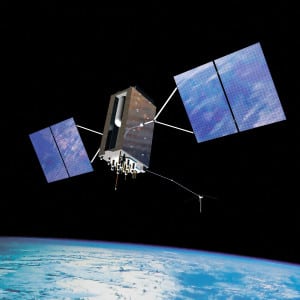Latest News
[Via Satellite 08-02-2016] The United States Government Accountability Office (GAO) recently expressed pessimism that the Defense Department’s (DOD) new Principal Deputy Space Adviser (PDSA) could truly improve how the Pentagon procures space programs. In a report (GAO-16-592R) released July 27, GAO said DOD has issues procuring space programs because leadership responsibilities are fragmented and inefficient, partly due to a lack of central leadership. GAO said as many as 60 stakeholder organizations across DOD, the executive office of the president, the Intelligence Community (IC), and civilian agencies have leadership responsibilities.
Of these, GAO said eight organizations, including Air Force Space and Missile Systems Center (SMC) and the National Reconnaissance Office (NRO), have space acquisition management responsibilities, 11 have oversight responsibilities and six are involved in setting requirements for defense space programs.
GAO cited a number of reasons for its pessimism that PDSA would truly improve DOD space acquisition. It said the Air Force secretary was previously designated as the Executive Agent (EA) for space in 2003 to unify space leadership. However, GAO said this role proved ineffective for several reasons, including insufficient authority and difficulty coordinating the numerous stakeholders. GAO also said several major studies have advocated broad enterprise-level reorganizations, including centralized leadership and improved acquisition performance, but DOD has generally shied away from such broad measures.
GAO said challenges are magnified in space programs because space technologies are frequently obsolete by the time they are deployed. Experts told GAO that DOD space acquisitions generally take too long due to fragmented leadership, a redundant oversight bureaucracy and difficulty coordinating among numerous stakeholders.
GAO found that the NRO’s acquisition model could be worthy of emulating. Officials told GAO that the NRO’s processes appear more streamlined than DOD’s, as NRO program managers are only two levels removed from the main acquisition decision maker, according to the report. On top of that, experts and officials told GAO that no one seems to be in charge of space acquisitions and many remain skeptical that the recently designated PDSA will have sufficient decision-making authority to address these concerns.
However, other experts, including ones from PDSA, told GAO they strongly believed that PDSA will be able to effectively consolidate fragmented leadership responsibilities. GAO said that, while it was too early to gauge whether PDSA had sufficient authority to consolidate space leadership responsibilities, PDSA authorities told GAO they will develop metrics to help assess the effectiveness of the PDSA role.
An executive from a commercial satellite communications (comsatcom) operator on July 29 doubted the ability of PDSA to improve how DOD procures space programs. The executive told Via Satellite’s sister publication Defense Daily that PDSA has supposed responsibility, but still does not have the right authorities, especially budget authority, and that the services still have too much individual power. Each service, the executive said, is too engaged in space, especially the Army.
“There is so much duplication of effort,” the comsatcom executive said. “They need to start over.”
GAO proposed a number of overall reforms to help improve DOD space acquisition. These include streamlining reviews and delegating more decision-making authority to lower levels. They also include increasing unity of national security space decisions between DOD and NRO; achieving lasting change that cannot be quickly undone; allowing time for the changes to work; and providing sufficient acquisition, execution and budget authority.
GAO also proposed a number of outside-the-box reforms in case the PDSA role does not prove effective. GAO proposed creating a defense space agency that would combine the military space functions into one agency, but would leave the NRO unchanged. It also proposed a space acquisition agency that combined SMC and NRO into one agency.
Lastly, GAO proposed a space force, which would essentially be a new military department for the space domain. These three options, GAO said, would likely result in significant short-term disruption to DOD’s space organizational structures, roles and responsibilities.
PDSA officials told GAO they believe the new office, created in 2015, will resolve these issues because its stated goal is to unify DOD space leadership; however, this change does not incorporate new budgetary and organizational authorities that DOD officials and experts say may prove necessary to overcome a history of insufficient centralized space leadership.
When contacted for comment July 29, an Air Force spokesperson pointed to DOD’s comment in the back of the GAO report. DOD said it does not concur with GAO publishing the report at this time because it contains “no new information” on the reforms already adopted and states clearly that it is “too early to gauge” whether these reforms are working. DOD called the report “entirely retrospective.”
GAO disagreed, arguing that the primary focus was to establish the current condition upon which future improvements might be made. The PDSA director is Winston Beauchamp, who is also the deputy under secretary of the Air Force for space.
Get the latest Via Satellite news!
Subscribe Now